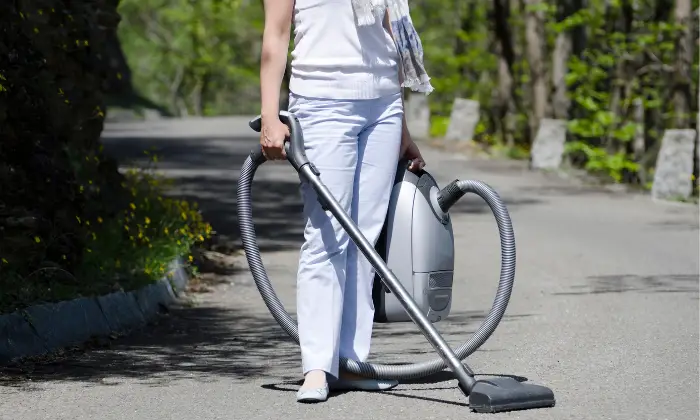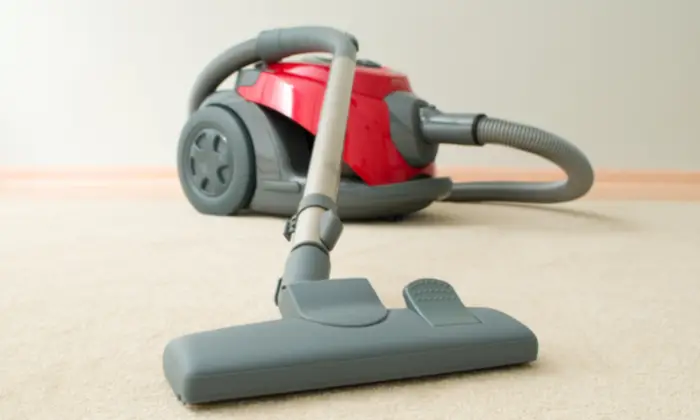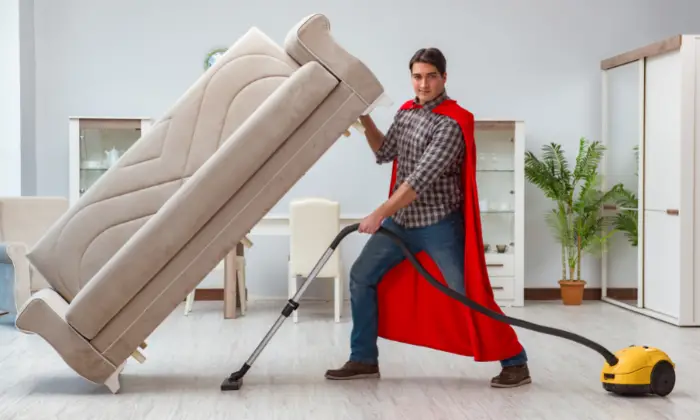
The debate on whether vacuum cleaners are e-waste continues to rage on, with no clear answer. This blog aims to clarify the matter and provide facts and figures on both sides of the argument. First, what is e-waste? Secondly, is a vacuum cleaner e-waste? Whether or not a vacuum cleaner is an e-waste depends on the definition of “e-waste.” If we consider vacuum cleaner electronic waste, a vacuum cleaner can be considered e-waste.
Read the full blog for some pros and cons you must know and how to dispose of your vacuum safely and reduce e-waste problems in the environment. Read on.
What is E-Waste?
E-waste is waste that has been manufactured using electronic or electronic-controlled technologies. Computers, televisions, VCRs, stereos, copiers, and fax machines are all electronic gadgets nearing the end of their “useful life.”
E-waste is a common term for them. Reuse, refurbishment, and recycling are options for many of these goods. In 2016 it was estimated that the world generated 2.3 million tonnes of electronic waste (e-waste).
How to identify an E-Waste item
If you’re ever wondering if an item you’ve been using is really e-waste, you can try a few simple tests. The first is to look for the symbol that indicates it’s been made with hazardous materials. The symbol can find on the product itself or the packaging.
If you can’t find it, it’s likely e-waste and should be recycled or composted instead of discarded in a regular trash bin. Other signs that an item is e-waste include heavy metals like lead and mercury, toxic gas emissions, and improper disposal instructions printed on the product.
So, next time you’re considering throwing out an old appliance, clothing, or furniture, ask yourself if it’s essential to waste your time and energy and recycle or compost the item instead. It might just be the wiser decision. So, Is a vacuum cleaner e-waste?? let’s find out –
Is a vacuum cleaner e-waste??

So, the significant question asked was, is a vacuum cleaner e-waste??
Yes, vacuum cleaners are one type of electronic waste. By definition, e-waste includes all products manufactured using electronic or electronic-controlled technologies. This includes computers, televisions, VCRs, stereos, copiers, and fax machines.
So if you’re wondering if an item you’ve been using is really e-waste and should be recycled or composted instead of discarded in a regular trash bin – it probably is! Before you buy or upgrade to a vacuum cleaner, you must understand all the pros and cons involved.
Make sure you know how the disposal process works, and weigh the pros and cons of owning a vacuum cleaner against the potential environmental and energy impacts.
The Pros and Cons of Owning Vacuum Cleaner:

To find out the proper answer to “Is a vacuum cleaner e-waste,” you must consider its pros and cons first. There are tons of pros to owning a vacuum cleaner. You must remember it’s a daily cleaning tool to clean your home and office or wherever needs to clean. Some of the benefits of vacuum cleaners include:
Pros of owing a vacuum cleaner:
- It’s an essential tool for cleaning your house and removing dirt, dust, and debris.
- Vacuum cleaners can be very efficient at cleaning small spaces.
- It’s affordable to buy used or new vacuum cleaners.
- Vacuum cleaners are usually reliable appliances – provided you take care of them (for example, by regularly changing the vacuum cleaner filter).
- If you have pets, a vacuum cleaner can be beneficial in removing hair and other allergens from the floors.
- Vacuum cleaners help clean up spills or remove pet waste.
- A vacuum cleaner can pick up large items like leaves or shoes off of pavement.
- They come with attachments that make it easy to clean specific areas – like stairs or car interiors.
- If your vacuum cleaner is old, there’s a good chance that parts are no longer available, and replacement parts are relatively inexpensive (depending on the model).
There are also some cons to owning a vacuum cleaner.
Cons of owing a vacuum cleaner:
- Vacuum cleaners can be noisy, even when not working very hard.
- They may also require maintenance, like changing the filter or belt, which can add to your cleaning bill.
- Additionally, vacuum cleaners release toxic chemicals when running, which you’ll have to handle safely if you want to recycle them responsibly.
- Sometimes it’s complicated to maintain and dispose of an old vacuum or broken vacuum cleaner.
How to Dispose of the vacuum by reducing e-waste (Its Important)

Vacuum cleaners can be a nuisance and a waste of time and energy, but they’re also a necessary appliance. Before throwing your vacuum cleaner away, it’s important to take the time to dispose of it properly.
This includes recycling, if possible, as this will help reduce the amount of waste going into landfills and polluting our environment. You can also give your vacuum to donation centers, community centers, or recycling centers.
However, there are many benefits to recycling a vacuum cleaner instead of simply discarding it. For example, recycling a vacuum cleaner can create new electronic devices and materials used in new products.
Additionally, recycling a vacuum cleaner can reduce the amount of waste going into landfills and help reduce the amount of hazardous waste produced yearly. So, before discarding your vacuum cleaner, consider the pros and cons of e-waste disposal.
Whether you want to get rid of any older model safely or want the best way to recycle it, you may read our full blog.
Related Questions:
What devices are included in e-waste?
A range of devices can be classified as e-waste, including vacuum cleaners. When you recycle your old vacuum cleaner, you are reducing the amount of harmful waste that ends up in landfills and polluting our environment.
A single Hoover can release up to 4 pounds of lead dust, which is harmful to your health. Furthermore, the average American throws away 6 pounds of electronic waste and metal components every month.
This includes old computers, monitors, servers, and other electronic equipment. By recycling and reusing old electronic appliances instead of simply throwing them away, you can help reduce the wastefulness of our society and protect our environment.
What can you do with an old vacuum cleaner?
Recycling an old vacuum cleaner can be a great way to reduce pollution and waste. The downside is that most modern vacuum cleaners have electronic parts and materials that are difficult to recycle.
However, recycling an old vacuum cleaner reduces the amount of waste that goes into landfills or incinerators. Furthermore, many people consider recycling old vacuum cleaners environmentally friendly because they’re creating jobs in the recycling industry.
So, not only are you doing something wise for the environment, but you’re also helping to support people looking for work.
Is a vacuum cleaner electronic appliance?
Yes, a vacuum cleaner is technically an electronic appliance as it uses electric motors and batteries to function. In addition, televisions, laptops, mobile phones, gaming consoles, and even vacuums can all be classified as electronic waste.
This means that we’re throwing away about 6 kW of electronics every month – which equates to more than 2 million pounds annually. And since vacuum cleaners are composed mostly of materials that generate toxic fumes when they break down, this creates an even more significant waste problem.
Not only are vacuum cleaners a waste of materials, but they also create toxic fumes when they break down. This is because these appliances contain hazardous materials like plastics and other chemicals.
Therefore, it’s crucial to recycle vacuum cleaners to reduce the amount of electronic waste created each year.
How do I dispose of a vacuum cleaner UK?
There are many benefits to recycling a vacuum cleaner, including reducing waste, helping preserve resources, and keeping products out of landfills. However, there are also dangers associated with improperly disposing of a vacuum cleaner.
It can release harmful toxins that could harm humans or wildlife. There are pros and cons to consider when it comes to disposing of a vacuum cleaner in the UK. The pros include recycling the product and helping reduce waste.
The cons include the dangers posed by improper disposal of e-waste products and the possibility of releasing harmful toxins into the environment. When deciding whether to recycle or dispose of a vacuum cleaner, carefully weigh all the risks and benefits before taking action.
How do you dispose of robot vacuums?
When disposing of a robot vacuum cleaner, it is best to consult your municipal waste disposal service to ensure that they accept vacuum cleaners with lithium-ion batteries.
It is also important to remember that the vacuum cleaner contains high levels of harmful chemicals and metals that must be adequately treated when recycled or composted. Robot vacuums should be disposed of similarly to regular vacuum cleaners.
Conclusion
Vacuum cleaners can be a big waste of resources in terms of energy and materials used. However, not all vacuums create equal e-waste. Some people say that all vacuum cleaners are e-waste. Is a vacuum cleaner e-waste? may you find the soulful answer here!
This blog was aimed to provide an overview of understanding your vacuum to reduce e-waste from the environment, the pros and cons of owning a vacuum cleaner, and instructions on how to dispose of it properly.
If you have anything to know, just comment, and please feel free to leave them below, and we’ll get back to you.










